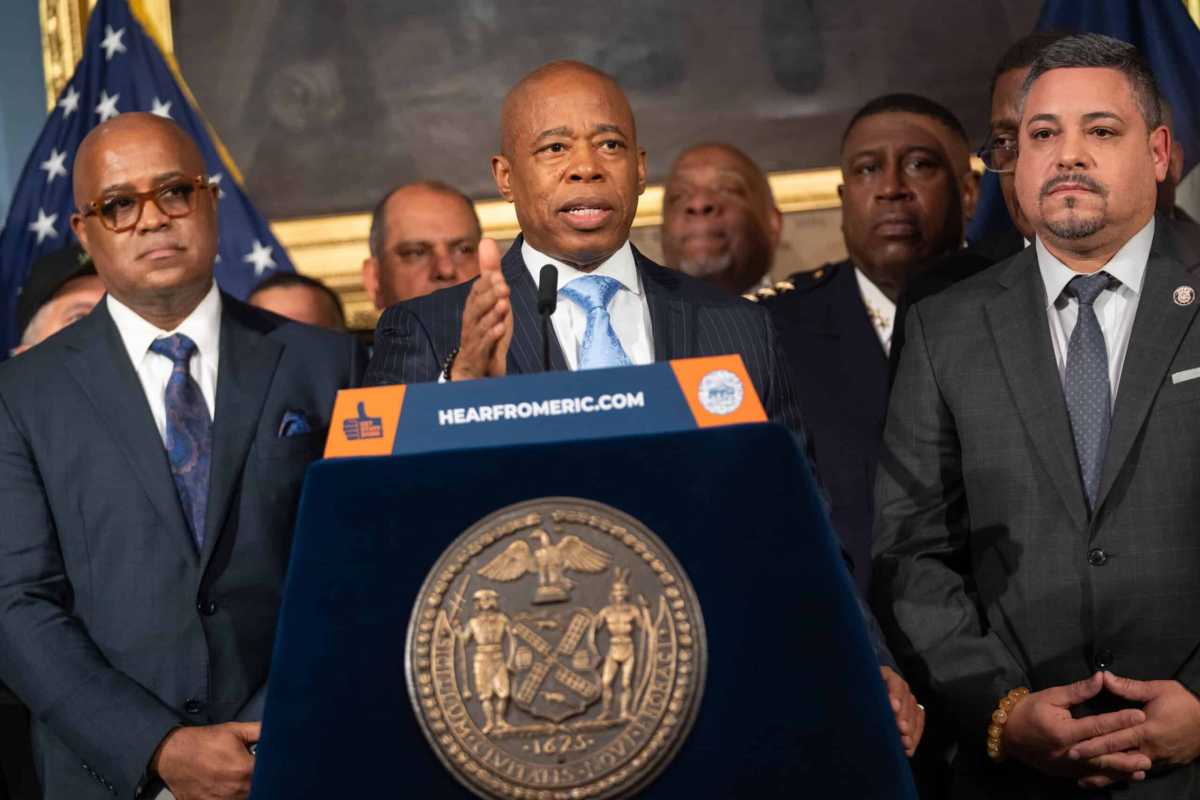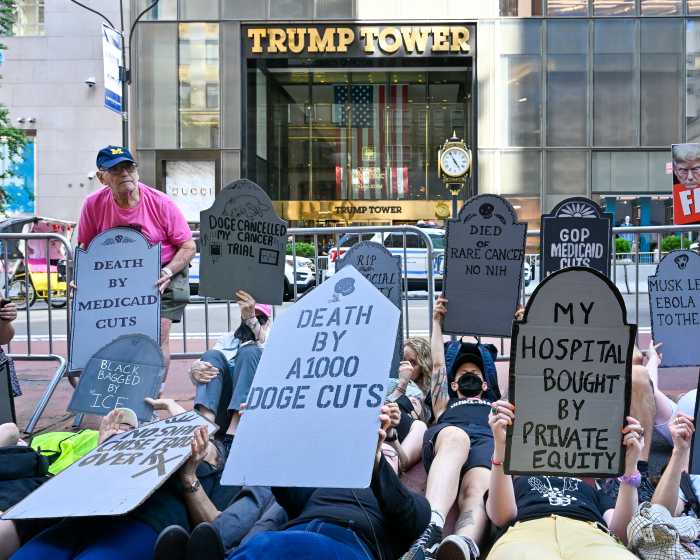Mayor Eric Adams on Friday vetoed a City Council bill that aims to ban solitary confinement in city jails, saying the measure would endanger both inmates and prison workers.
“Under our administration, the city’s jails are getting safer — but this bill would have taken us in the wrong direction. Vetoing this bill will keep those in our custody and our correction officers safer,” said Adams. “Had it taken effect, the Department of Correction would no longer be able to protect people in custody, or the union workers charged with their safety, from violent individuals.”
Adams, at a Friday morning press conference, said the city already prohibits placing detainees in solitary confinement as punishment, but the bill would have denied DOC employees a necessary tool that allows them to temporarily isolate individuals for their own safety, or the wellbeing of others.
Sponsored by Public Advocate Jumaane Williams, the bill aims to guarantee that inmates in city custody be allowed at least 14 hours outside of their cell in a congregate setting (baring emergency lockdowns). The City Council passed the bill on Dec. 20.
Adams, in announcing his intention to veto the measure, pointed to a recent negative assessment of the bill by federal monitor Steven Martin, who was appointed by the federal courts to oversee the city’s management of violence-plagued detention facilities at Rikers Island.
“The Monitoring Team has deep concerns about many of the bill’s provisions related to the use of restrictive housing, de-escalation, emergency lock-ins, and the use of restraints and escort procedures,” Martin wrote on Jan. 12. “Many of the provisions, as currently drafted, could inadvertently undermine the overall goals of protecting individuals from harm, promoting sound correctional practice and improving safety for those in custody and jail staff.”
DOC Commissioner Lynelle Maginley-Liddie hailed Adams’ veto as a necessary move to protect individuals inside the city’s jails and prisons.
“I’m grateful that Mayor Adams has vetoed this bill, and I urge the council to reconsider its provisions. We all want to make our jails safer, but 549-A will not accomplish that shared goal,” she said. “I have had deep seated concerns about 549-A and the serious threat it poses to the safety of my staff and people in our custody if it were to be implemented.”
Supporters of the bill, which passed by a 39-to-7 margin, railed against Adams’ veto, including the Public Advocate, who claimed further limitations on isolation of detainees would have an overall positive effect on policing inside jails and prisons.
“With this veto, the mayor has condemned New Yorkers to suffer in solitary confinement and isolation,” Williams said. “It’s cowardly, weak, shameful, and entirely expected from this version of this mayor.”
Council Speaker Adrienne Adams and Council Member Yusef Salaam, the chair of the public safety committee, claimed that the Mayor was downplaying the amount of time that detainees are isolated from others, and highlighted the harmful effects of solitary confinement.
“Solitary confinement, by any name, has been proven to cause physical, psychological, and emotional harm, and its use has contributed to continued violence and deaths on Rikers Island,” they wrote in a statement.
Having passed with an overwhelming majority, there may be enough support in the Council to override the mayor’s veto, though the makeup of the legislative body has changed since the bill initially passed after four new members took office on Jan. 1.
Overriding the veto would require a two-thirds majority of Council members voting in favor, which the speaker said they were “prepared to do.”





































